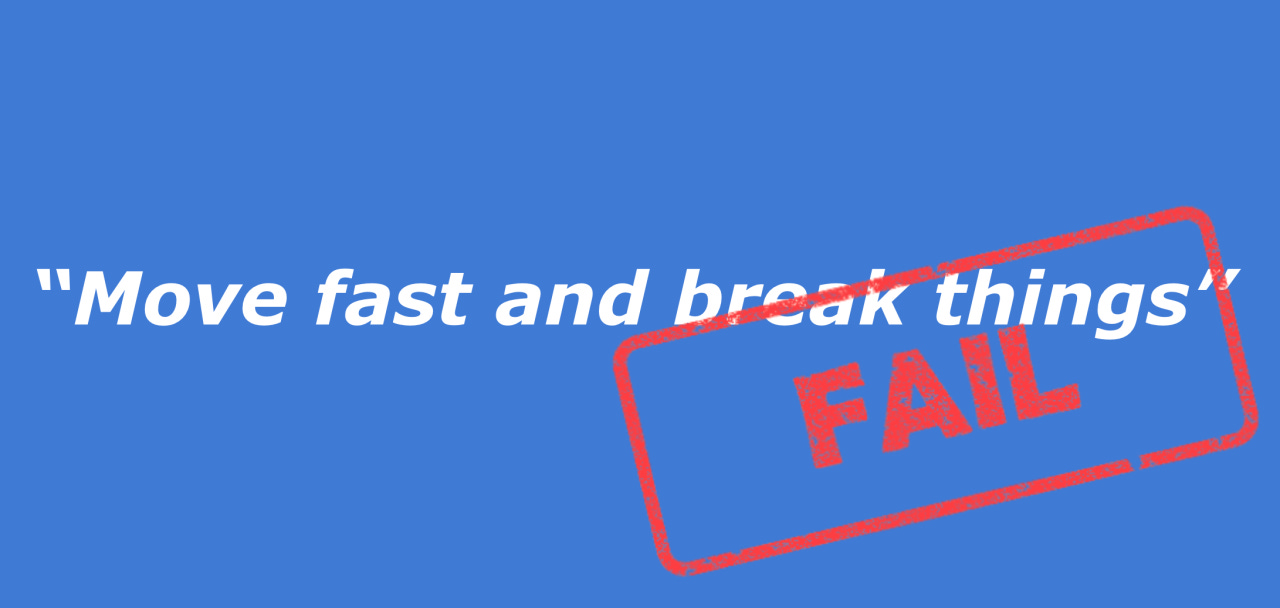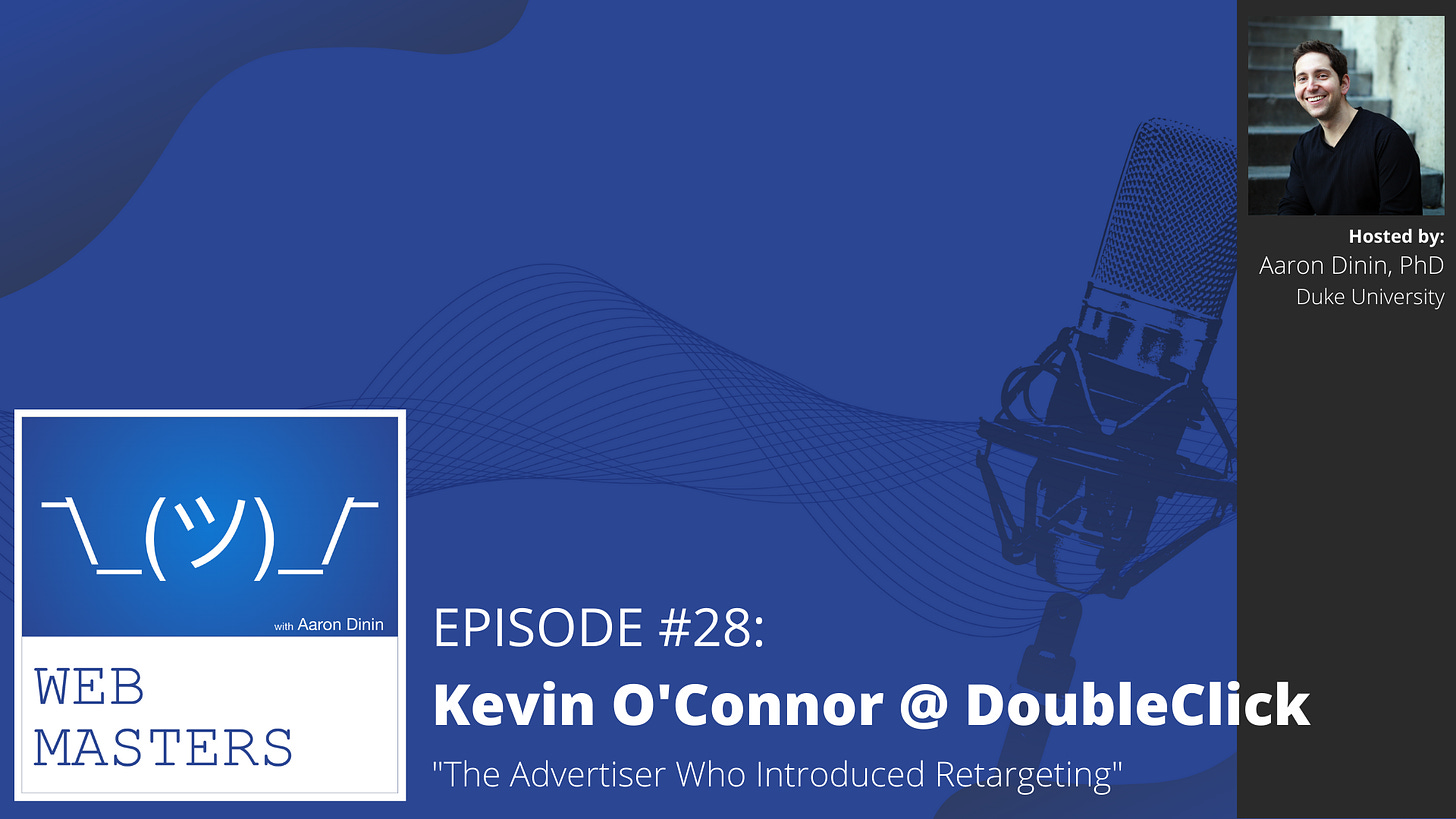Entrepreneur Office Hours - Issue #25
Misunderstanding cliched startup concepts, turning side hustles into businesses, and the guy who gave us ad retargeting
Like any culture, the startup world has its share of cliches and common concepts. And, also like any culture, some of those concepts are completely misunderstood. This week, I shared a three part series on LinkedIn about commonly misunderstood startup concepts I think you’ll enjoy. What other entrepreneurship concepts do people often seem to get wrong?
Also in this week, I got to speak with Kevin O’Connor, founder of DoubleClick, which is basically the company that invented online advertising. He sold for $1.4 Billion, and now it’s the foundation for Google’s enormous ad network.
And I answer a question about leveraging pricing as a competitive strategy. TL:DR… DON’T!
Reply to this email with any questions you have. I’ll do my best to answer.
-Aaron
3 Startup Phrases Entrepreneurs Completely Misunderstand
The startup world has lots of cliches and common phrases. But not all of them mean what people think. Here are three of them:
The Advertiser Who Introduced Retargeting
Even if you haven’t heard of DoubleClick, you’ve certainly been impacted by it. In fact, there’s a good chance DoubleClick’s ad serving platform is impacting you in some way literally this second. Hear how DoubleClick's founder, Kevin O'Connor, built it.
Get the newest episode of Web Masters:
…or search “Web Masters” wherever you listen to your favorite podcasts.
3 Things to Know Before Turning a Side Hustle Into a Full-Time Job
Not every business needs to be a career, and not every passion needs to be a business. So how can you tell if your side hustle is ready to be something more?
Office Hours Q&A
———————
QUESTION:
The companies we’re competing with are better established and have lots more resources to go after customers, so we’re trying to figure out the best way to compete.
The standard model for what we’re doing is to charge users a commission on the revenue they’ll generate using our platform, and that’s what our competitors do. We’re thinking about charging a flat fee, which will be slightly more expensive up front, but a lot cheaper for users in the long run.
Is that a good strategy?
-Karl
------------------
Knowing nothing about your exact business or market, I can’t definitively answer whether or not you’re proposing a good strategy. However, I can offer two important cautions:
Caution #1: Other companies are doing what they’re doing for a reason
I often hear entrepreneurs who are new into a market or industry look at the incumbents and say “that doesn’t make any sense” or “that’s wrong” or “we’re going to do things completely different.” You might be right. Maybe the incumbents are crazy/idiots/stupid/etc. However, starting from the belief that currently successful companies are somehow filled with a bunch of oblivious idiots seems like a dangerous assumption.
Remember that businesses are wildly difficult to build and operate. I point this out because if you’re looking at an established, successful company and assuming they don’t know what they’re doing, chances are the opposite is true. There’s a much better chance the company you think is filled with idiots knows exactly how it achieved its success, and you’re the one who doesn’t know what you’re doing.
Rather than assuming the competitors don’t know what they’re doing, assume there’s a good reason behind every decision they made. This is particularly true if there’s a situation like you’ve described where multiple competitors are doing the same thing.
If everyone else is using a commission revenue model, there’s probably a good reason. I’m guessing the commission model is A) the optimal way for the business to make money; and B) it’s what customers expect and are used to (remember: never underestimate the importance of customer expectations, even if they seem illogical).
Caution #2: Competing on prices is difficult
Lots of new entrepreneurs try to compete on price. At first glance, competing on price makes sense because it’s an easy way to differentiate yourself from competitors.
But price is actually a terrible way to compete for a number of reasons. The two most important of those, in my mind, are: 1) businesses benefit from making more money, so charging more if you’re able to do so seems like a good idea; 2) competing on price is a race to the bottom because someone can always come along and undercut you.
While price can seem like a good differentiator, what you’ll learn over time is that customers actually prioritize benefits over costs. That means they’ll pay more if they feel like they’re receiving something they truly want in return.
For evidence, consider any luxury brand. Why would someone spend thousands of dollars for a Hermes bag when you can get an equally useful bag from Walmart for significantly less? The answer, of course, is that the Hermes bag provides other sources of value beyond the ability to carry things.
Rather than competing on price, I encourage entrepreneurs to compete on value. Don’t try to undercut your competitors. That’s a losing battle, particularly if they’re already much better resourced than you. Instead, focus on creating more value. If you create more value, you’ll attract customers and you’ll be able to charge them more, which is the best of both worlds.
Got startup questions of your own? Reply to this email with whatever you want to know, and I’ll do my best to answer!







